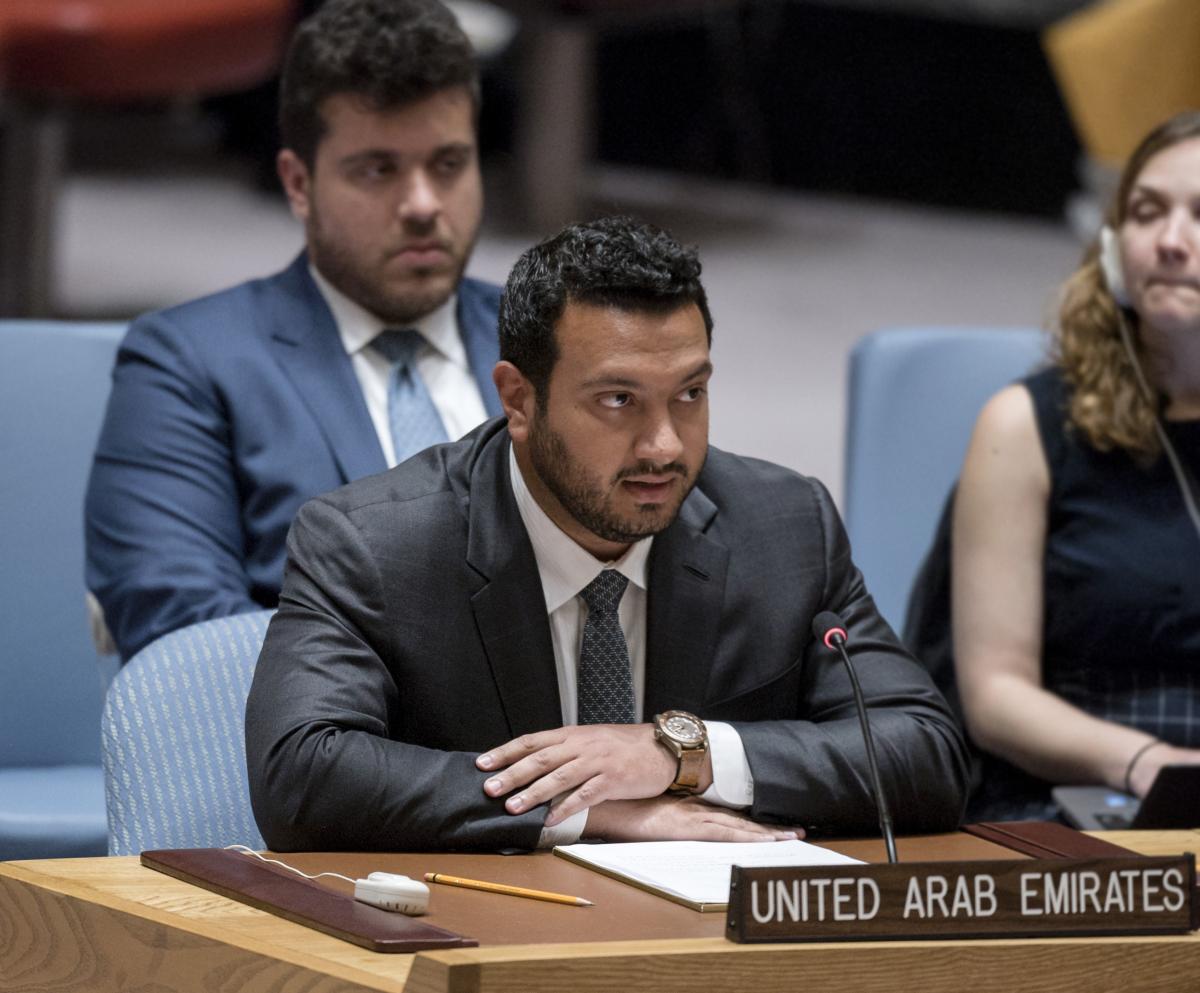NEW YORK – Mr. Jamal Al Musharakh, Deputy Permanent Representative of the United Arab Emirates to the United Nations delivered the UAE’s statement at the Security Council’s quarterly Open Debate on the situation in the Middle East, including the Palestinian question.
The debate was chaired by the Council’s President for the month of April, Ambassador Nikki Haley, Permanent Representative of the United States of America to the UN. In her remarks, Ambassador Haley emphasized the need for focus on Iran and Hizbullah as key threats to peace and security in the region. She noted in her statement to the Council that in the past the Council has not paid sufficient attention to Iran and Hizbullah’s direct actions in destabilizing the Middle East, including training deadly militias in Iraq and arming Houthi militants in Yemen. Ambassador Haley stated that Iran was a designated state sponsor of terror, and that the US would continue to work with its partners and allies to interrupt Iran’s support for militant and terrorist groups. She called for, “all states to fully implement [Security Council] Resolution 2231, which bans the transfer of weapons to and from Iran, as well as the arms embargoes against the Houthis in Resolution 2216, and for Lebanon in Resolution 1701.”

Mr. Al Musharakh called for resolving the conflicts in Syria and Yemen, where, he emphasized, the common denominator was Iran’s interference. He stated that Iran continued to cause tension and instability in the region, posing an existential threat through its expansionist policies, exporting its revolution across borders, and its clear disregard for international sovereignty by interfering in domestic affairs of neighboring countries. In his statement, Mr. Al Musharakh stressed “Iran is a State sponsor of terrorism in our region – from Hizbullah in Lebanon and Syria, to the Houthi militias in Yemen, and terrorist groups and cells in Bahrain, Iraq, Kuwait, and Saudi Arabia.”
On the situation in Yemen, he stated that not only were the Houthi militias endangering peace and security within the country, but also carrying out attacks across Saudi Arabia’s borders, therefore threatening peace and security in the region. He noted that the only way to ending the conflict in Yemen was through a political process, based on Security Council Resolution 2216, the initiative of the Gulf Cooperation Council, and the outcomes of the National Dialogue. He reminded the chamber that ensuring humanitarian access to civilian populations must remain a priority until peace is achieved.
Mr. Al Musharakh highlighted that finding a resolution to the Palestinian question remained a fundamental priority for the UAE. He noted that the UAE is deeply concerned about the violence in the Occupied Palestinian territories and the absence of a just resolution which provides the Palestinian people their inalienable rights. He stated that the UAE calls for the international community and the Security Council to support a two-state solution, and the establishment of an independent Palestinian State based on the June 1967 borders, with East Jerusalem as its capital, in accordance with relevant Council resolutions, the Arab Peace Initiative and the Madrid Peoples. Echoing Resolution 2334, he called on Israel to cease its illegal settlement activities which constitute a major obstacle to the two-state solution.
Regarding the conflict in Syria, Mr. Musharakh expressed the UAE’s deep concern about the continued and deplorable use of chemical weapons by the Syrian regime, and reiterated the UAE’s support for the recent US military actions against military targets in Syria. He called for concerned parties to ensure that non-state actors and extremist militias are not in control of Syria, and urged the UN-brokered peace talks to move forward.
Mr. Musharakh noted that the promotion of security and stability in the region is of paramount importance for the UAE, and offered three prescriptions in this regard. Firstly, he called for the Security Council and its Sanctions Committees to continue their efforts to investigate, report, and act on Iran’s sanctions violations. Secondly, he urged for the international community to pay special attention to the plight of youth across the region, who in the absence of economic opportunities are vulnerable to exploitation by terrorist organizations in the region. Lastly, he called for more engagement with regional organizations and actors to build the necessary momentum for a peace process, adding that it was necessary for Member States need to comply with the decisions of the Council in accordance with Article 25 of the UN Charter, as well as respect international law.
